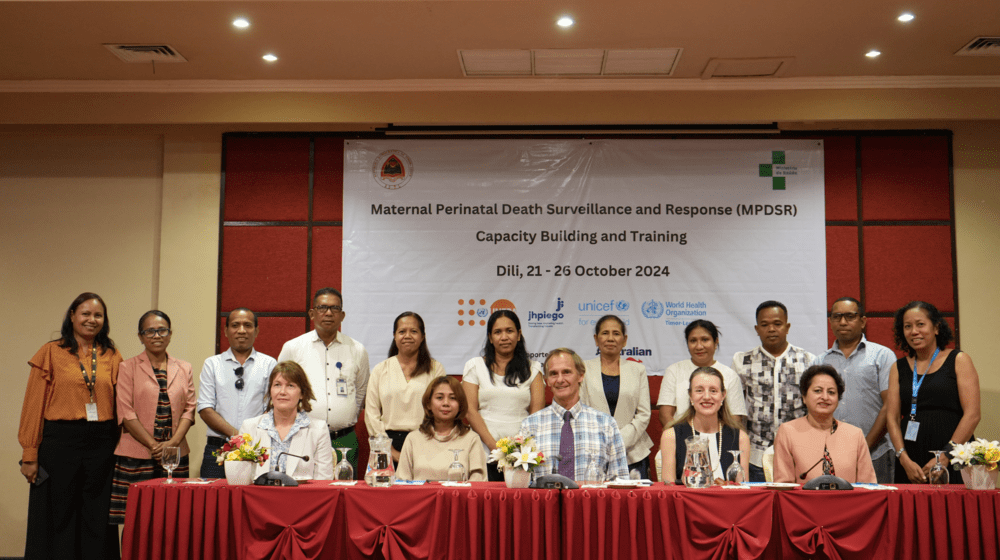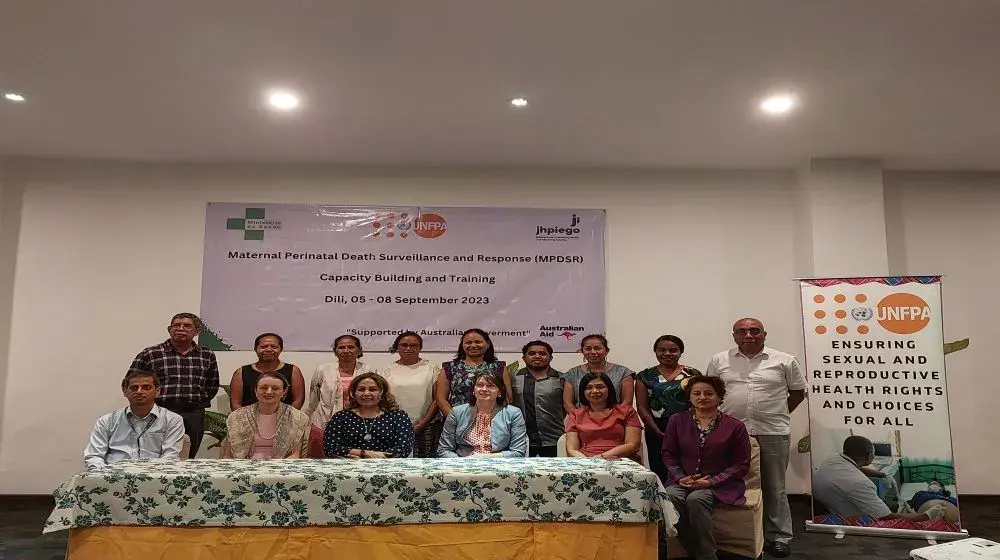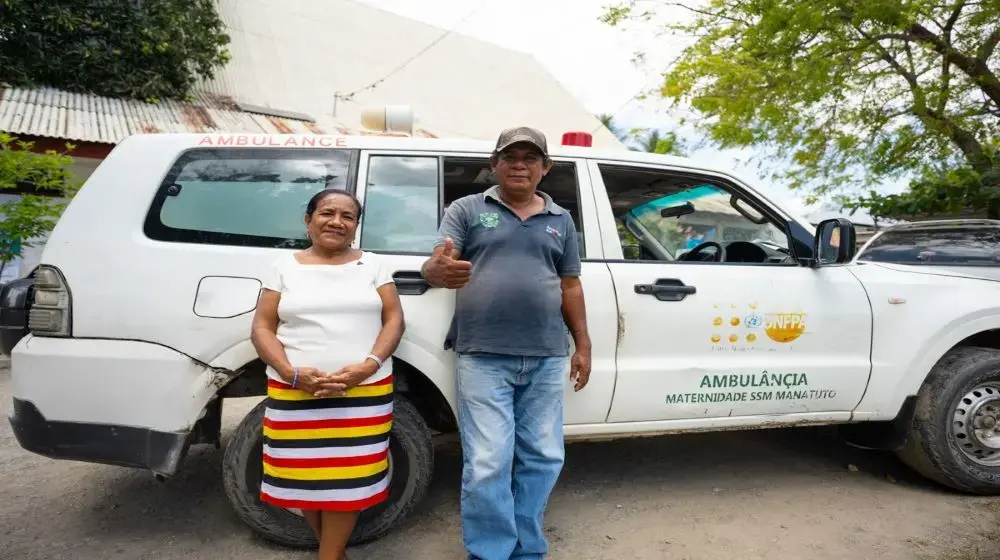Dili, October 21, 2024— In an effort to strengthen healthcare systems and enhance surveillance of deaths during pregnancy, labor, and the postpartum period in Timor-Leste, the Ministry of Health, with support from the Australian Government through UNFPA’s Asia and Pacific Regional Office (APRO), launched a six-day capacity-building training on Maternal and Perinatal Death Surveillance and Response (MPDSR). The training is being held at Hotel Novo Turismo, Dili.
Dr. Kusum Thapa, Senior Technical Adviser at Johns Hopkins Program for International Education in Gynecology and Obstetrics (JHPIEGO), led the training. She explained that MPDSR is a systematic process that evaluates causes of death among pregnant mothers and newborns (0-28 days) to identify gaps in care and develop targeted interventions. "MPDSR training is designed to build the capacity of frontline healthcare workers and managers to enhance health outcomes, improve the quality of care, and prevent maternal and newborn deaths, ultimately contributing to the achievement of sustainable development goals," said Dr. Thapa.
Bruce Campbell, UNFPA Representative a.i., highlighted the preventable nature of many maternal deaths. "Every maternal death is a tragedy. Each life lost is not just a statistic, but a mother, a sister, a daughter, and a vital member of her community. Together, we can change this narrative by ensuring that every mother receives the care and support she deserves. This training will help us transform awareness into concrete actions that reduce maternal deaths in Timor-Leste."
Dr. Lucia Lay Barreto, Head of the Maternal Child Health Department, representing the Director General of Primary Health Care, remarked that while the maternal mortality ratio in Timor-Leste has decreased over the years, it remains the highest in Southeast Asia. "According to the 2016 Demographic Health Survey (DHS), the maternal mortality ratio was estimated at 195 per 100,000 live births, with most deaths resulting from preventable causes," said Dr. Barreto.
The Ministry of Health established the Maternal Death Surveillance and Response (MDSR) system in 2014 with support from UNFPA. Maternal death reviews (MDR) began in 2015 at Guido Valadares National Hospital and five referral hospitals, including the Oecusse-Ambeno Regional Hospital. In 2017, with support from UNFPA and WHO, the Verbal Autopsy Review (VAR) mechanism was rolled out across all 13 municipalities. In 2019, UNICEF helped integrate the perinatal component into the MPDSR system. Dr. Barreto expressed gratitude to UNFPA, UNICEF, and WHO for their ongoing support.
The training, co-facilitated by UNFPA and UNICEF from October 21 to 26, includes 24 participants from hospitals and health centers across Timor-Leste, representing national and regional hospitals in Baucau, Maliana, Suai, Oecusse, and community health centers in Viqueque and Manufahi, as well as the Maternal and Child Health Department of the Ministry of Health, UN agencies, and partners.
Reducing maternal deaths is one of UNFPA's key transformative goals, alongside ending unmet needs for family planning and eradicating gender-based violence. A robust MPDSR system is critical to this effort, as it provides timely information for action, facilitates the identification and review of maternal and perinatal deaths, and ensures that preventive measures are taken to avoid future deaths.





